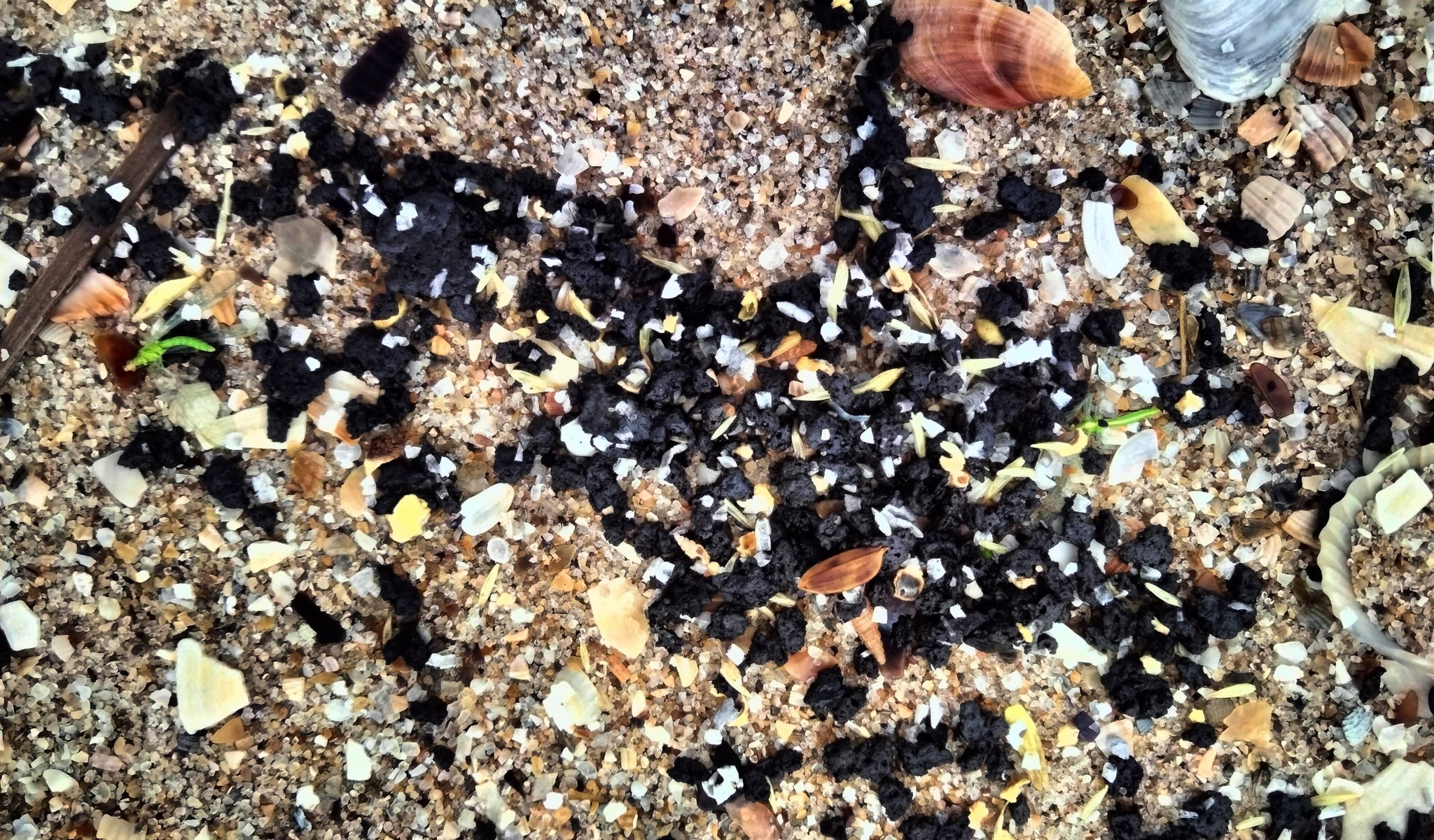Employees of the Tuzly Lagoons National Nature Park (Tuzlivski Lymany) in Odesa Oblast have collected up to 4 kilograms of fuel oil that washed ashore following Russian tanker accidents in December 2024.
On 15 December 2024, two Russian oil tankers, Volgoneft-212 and Volgoneft-239, suffered severe damage during a storm near the Kerch Strait off the coast of occupied Crimea.
The vessels were over 50 years old and had been operating under questionable safety conditions, as they were not supposed to be navigating during winter storms according to Russian maritime regulations.
Volgoneft-212, carrying approximately 4,300 tons of mazut, a heavy fuel oil, sustained hull breaches and ran aground, while Volgoneft-239, with 14 crew members on board, went adrift. The incidents resulted in a fuel spill at the site. A floating crane became the third Russian vessel to sink near occupied Crimea amid severe storm conditions.
The spill continues to spread toward Ukraine’s Odesa and potentially to the shores of Türkiye, Georgia, and Romania, posing risks to local fisheries and food safety.
According to the park, small fractions of fuel oil, measuring 3–4 mm, were identified along a 200-meter stretch of the Black Sea coastline within the park’s boundaries.
For three days, park staff surveyed approximately 40 km of sandbank to assess the extent of contamination.
Samples of the fuel oil were sent to a private laboratory in Odesa for analysis, with cleanup efforts resulting in the removal of all visible fuel oil from the area.
Employees of the Ukrainian national park in Odesa Oblast collected 4 kg of fuel oil particles washed ashore after the sinking of two Russian oil tankers in December 2024.
— Euromaidan Press (@EuromaidanPress) January 27, 2025
The tankers were reportedly caught in a storm, releasing 4,300 tons of mazut—a heavy fuel oil—into the Black… pic.twitter.com/kDDaL5zAA4
Despite this success, the park warns that the situation remains precarious.
“There are no guarantees that the sea will not throw it out again tomorrow, since millions of small fractions are still drifting in the waters of the Northwestern part of the Black Sea,” said the Head of the research department of the park Ivan Rusev.
Environmental impact extends to wildlife and beyond
The oil spill has also affected local wildlife, including the discovery of a rare red-nosed loon, listed in Ukraine’s Red Book of endangered species, covered in fuel oil near the park. The bird was swept back into the sea by waves before it could be rescued.
The park highlighted the broader implications of the spill, noting that “thousands of tons of fuel oil that have entered the sea will cause great harm to the natural ecosystems of the Black Sea and its biodiversity.”
Russian authorities have detained the captains of the tankers, with Interfax Russia citing poor weather and crew error as possible causes.
Russian President Vladimir Putin confirmed that 40% of the tankers’ fuel oil had leaked, prompting the declaration of a federal emergency in the occupied Crimea and Russia’s Krasnodar Territory.
Experts warned that without timely removal of the fuel oil from both the sunken vessels and affected shorelines the environmental damage will persist for at least 20–30 years, with severe consequences for marine life, coastal ecosystems, and regional economies.
Related:
- Black Sea needs 20-year recovery from Russian tanker oil spill as contamination spreads
- Oil spill devastates Black Sea: long-term impact expected to last over 20 years
- Storm claims third Russian vessel near occupied Crimea as Greenpeace urges action over oil spill
- Two Russian tankers sink near Kerch strait amid storm (video)


